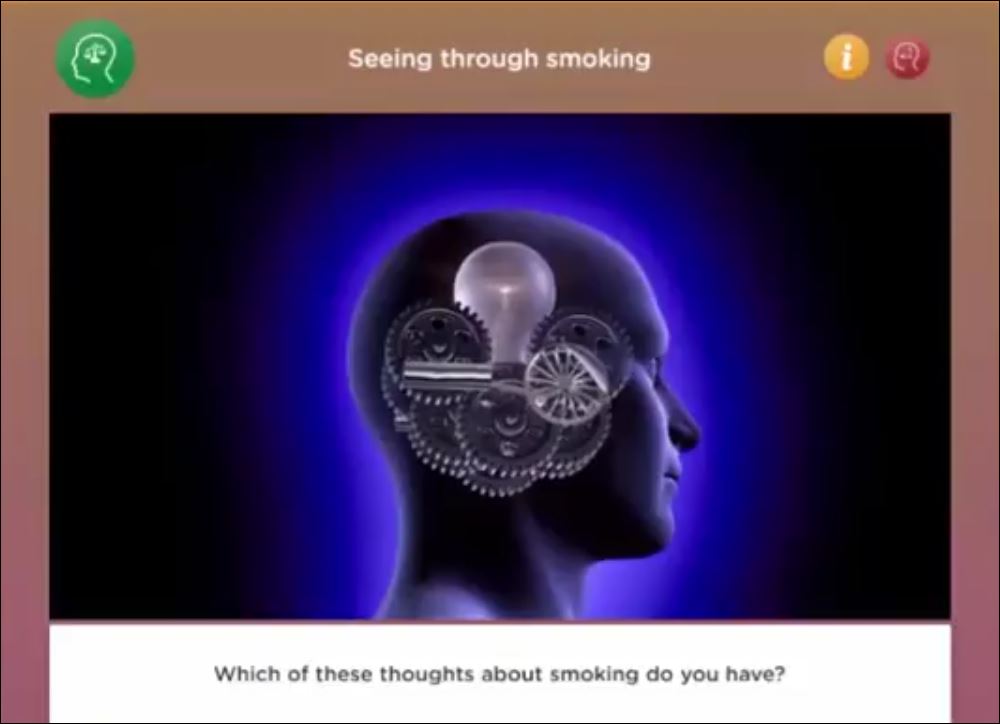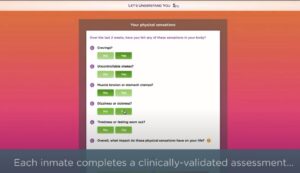New digital intervention
Breaking Free Online, a company well known for its digital drug and alcohol programmes, has produced a new digital smoking cessation intervention designed specifically for use in prisons. The intervention can be used on a stand-alone basis on in conjunction with Nicotine Replacement Therapy, medication or e-cigarettes.
The timing of this new service is obviously linked to the roll-out of the smoking ban in prisons (currently being piloted in Wales).
Main features
The main features include:
- The intervention integrates 26 evidence-based behaviour change techniques, drawing on cognitive-behavioural therapy, mindfulness, motivational enhancement therapy and relapse prevention.
- It prepares users for their quite date and equips to maintain long-term abstinence from nicotine.
- It uses congnitive restructuring techniques to change the underlying mindset and self-identity of users from smoker to lifelong non-smoker.
- It delivers personalised, evidence-based treatment at scale, making it cost-efficient.
- It allows uptake, impact and outcomes to be monitored in real time via an online dashboard.

The prison context
To maximise treatment access for service users, the intervention will be:
- Available on Virtual Campus, which is installed in over 95% prisons, allowing the programme to be delivered in education suites.
- Whitelisted by HMPPS for use in prisons that do not currently operate Virtual Campus.
- Accessible via digital hub in prisons that provide in-cell technology services.
Every intervention component within the programme generates an action plan in PDF form which service users can print and then use to practice the behaviour change techniques in their cells.
As the programme is Internet-based, it provides continuity of care: service users can can continue to access treatment after they’ve been either transferred between prisons or released back into the community.
Accompanying Group Programme
Breaking Free has also developed a structured group behaviour therapy program to work alongside the digital intervention. The programme is delivered as a series of three 1-hour group sessions so as to balance therapeutic impact with the practical constraints of implementation within the prison setting.
The programme is sequenced to move service users from contemplation (preparation to quit) to action (management of nicotine cravings) to maintenance (emotional regulation). It contains several interactive video-based components from the digital intervention to encourage maximum engagement with the digital tool.
The programme gives users a printed handout after each session to facilitate continued skill practice and can be used to prepare people for any approach to smoking cessation; it can also be delivered as a stand-alone intervention for people whose learning style is most suited to groupwork.

Conclusion
Given the current state of upheaval in our prisons with high levels of violence and drug misuse the norm; many prisoners and staff are very concerned about the prospect of enforcing abstinence from smoking.
The Breaking Free approach combines, in my opinion, the two key aspects of a short, practical programme backed up by support which can be accessed behind the cell door.
I’m looking forwards to seeing the results of the evaluation.
You can see the YouTube explanation of the programme here:
(If you can’t see the video on your device, click here.)
All innovation posts are kindly sponsored by Socrates 360 which provides a complete solution for staff, prisoners, probationers, etc. combining engaging content, simple set-up and an easy tracking system. Socrates 360 has no influence over editorial content.








